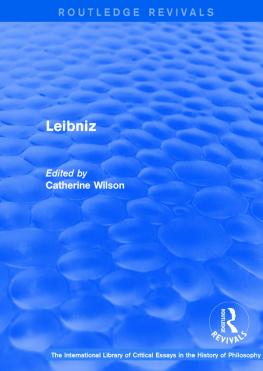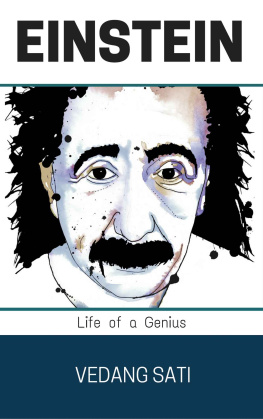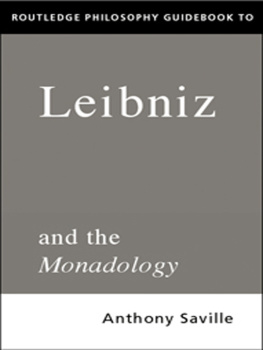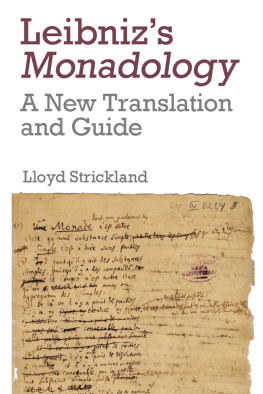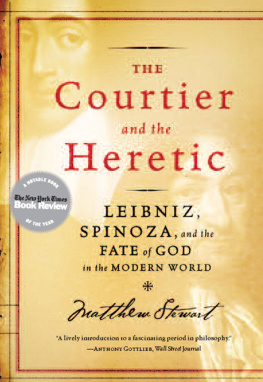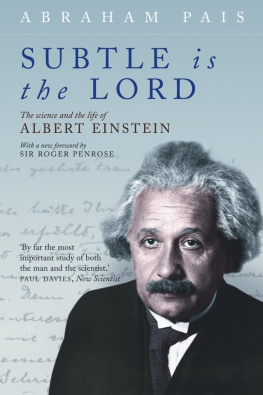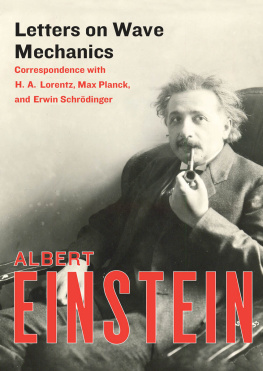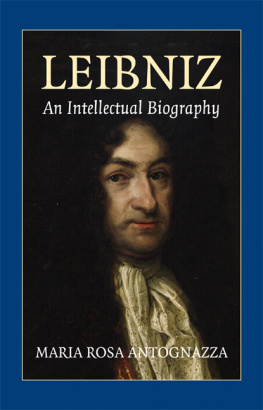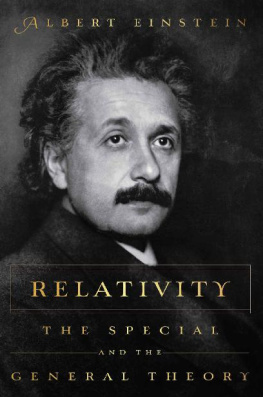Leibniz, Einstein, and China
Jan Krikke
Leibniz, Einstein, and China
First edition 2021
Text by Jan Krikke
eISBN 978-90-77787-46-5
Print ISBN 978-90-77787-44-1
Published by Olive Press
Leeuwerikstraat 4 B, 1021 GL
Amsterdam, The Netherlands
Text & cover page Copyright Jan Krikke
No part of this book may be reproduced, copied, stored or transmitted in any form without the prior written consent of the publisher
Contents
When the yin and the yang, initially united, separated forever, the mountains poured forth water
The Chinese view of Creation
Preface
Art and science have been separated since the days of Aristotle. One story has it that Aristotles students cataloged his work on physics and found interpretive observations among them. They added these observations to the end of Aristotle's work on physics and called it meta-physics (after physics). Aristotles work on physics was the first building block in the development of European natural science, culminating in the scientific revolution of the last 400 years.
The development of science led to increasing specialization. Knowledge in all fields exploded, and keeping up with developments in all areas of thought became impossible. Gottfried Leibniz is often cited as the last scholar to have had full command of all the intellectual activity of his days - mathematics, politics, natural science, and even sinology. In the 19 th century, science became the domain of specialists in fields that grew progressively narrower. It was said that the scientists knew no art and the artists knew no science.
The first sign of change came in the 1940s, with the birth of cybernetics. While rooted in computer science, cybernetics was one of the first interdisciplinary sciences. It involved computer scientists as well as neurologists, social scientists, and cultural anthropologists. Artificial intelligence, (cybernetics with a self-learning capability), is on track to become the most interdisciplinary sciences of all. It will draw not only on mathematics but also on psychology, linguistics, cognitive science, intercultural studies, and philosophy, among many others.
In recent decades, scholars from various disciplines have called for a widening our view of scientific knowledge. They want science to accommodate interpretive knowledge so it can build bridges with the humanities and give room for the sub-empirical. Notably, the pioneers of quantum physics resorted to interpretive knowledge. Edwin Schrodinger argued that the near-mystical nature of the sub-atomic world was echoed is the de ancient Indian Vedas. Niels Bohr used Taoist and Buddhist thought in his scientific publications.
Even Leibniz, the inventor of the binary code, unwittingly resorted to interpretive science when he claimed that the Chinese were the first to use the binary code. He assumed that although the yin-yang symbolism of broken and unbroken lines and his code of 0 and 1 had different purposes, both systems were binary, so their fundamental principle must have been the same. As we shall see, in the abstract, he was right.
Science and mathematics are universal; they are not affected by cultural differences or subjective interpretations. However, the actual application of science and technology has a cultural dimension. That also applies to artificial intelligence, perhaps the last science we will ever need. If we were to ask two artificial general intelligence systems one Chinese and one American to recommend the shortest route to world peace, we would get two different answers. AI systems will reflect the cultural values of their designers, including their ethics, aesthetics, and worldviews.
In science, the empirical method is key, but the sub-empirical will be part of a human-centered approach to the application of science. The sub-empirical and interpretive knowledge played a key role in shaping the Chinese worldview, as well as in the rest of Asia. The encounter between Western scientism and Asian interpretive knowledge may very well be the key to the future of technology.
The Binary Book of Changes
The Chinese, often described as inscrutable, do not excel in explaining their culture to the world. Their culture has been shaped by a worldview that can be traced back to the Book of Changes , the ancient classic that suggests nature and the cosmos as a whole is an interplay of polar opposites plus and minus, active and passive, and life and death, generically known as yin and yang. Over the centuries, the Chinese internalized the yin-yang principle to the extent that they find it difficult to articulate how it informs their worldview. It is like asking fish to describe water.
On the other hand, people in the West have not always excelled at listening. James Legge, the Scottish sinologist who first translated the Book of Changes into English, ridiculed claims by the Chinese that their ancient book anticipated Western science, including (electro) magnetism. In the introduction to his translation of the Book of Changes , Legge wrote:
Chinese scholars and gentlemen who have got some little acquaintance with western science, are fond of saying that all the truths of electricity, heat, light and other branches of European physics are in the Eight Trigrams (the constituent parts of the 64 hexagrams). When asked how, then, they and their countrymen have been, and are, ignorant of those truths, they say that they have to learn them first from western books, and, then, looking into the Yi ( Book of Changes ), they see that they were all known to Confucius more than 2000 years ago. The vain assumption thus manifested is childish; and, until the Chinese drop their hallucination about the Yi as containing all things that have ever been dreamt of in all philosophies, it will prove a stumbling block to them, and keep them from entering the true path of science.
A patronizing attitude toward the Chinese was not unusual in Legges days. The Book of Changes didnt explain the truths of electricity and other branches of European physics. Rather, it asserts that the universe operates on a two-fold principle. The Chinese expressed this notion in their view of Creation: When the yin and the yang, initially united, separated forever, the mountains poured forth water. Magnetism was a primary manifestation of the mutually dependent opposites. The Chinese invented the magnetic compass after they discovered magnetic stones, a physical manifestation of yin and yang.
The assumption that the universe is an interplay of two opposite forces emerged in Chinas animistic age and led to the notion of Tao, the source of yin and yang. Tao as a concept is a sophisticated form of animism; everything is related but differentiated and animated by the interaction of polar opposites.
Legge probably meant to say that the generic types of yin and yang are too broad and too vague to have enabled the development of modern science. More important was that the Chinese did not develop the scientific concept of proof. Joseph Needham, in his monumental book series Science and Civilisation in China , argued that the Chinese did not take the empirical method far enough. On the other hand, the generic nature of the yin-yang principle was key in the development of Chinese civilization. Moreover, it accommodates virtually all aspects of reality, from human psychology to the nature of reality. This explains why the Book of Changes has had such enduring and widespread appeal.
Nearly all aspects of Chinese civilizationwhether cosmology, natural philosophy, sociology, or artcan be traced to the Book of Changes . Confucius appropriated the Eight Trigrams to develop his hierarchical social structure by associating the eight family members with the eight trigrams. The Book of Changes informed the development of Chinese architecture, medicine, and warfare.



